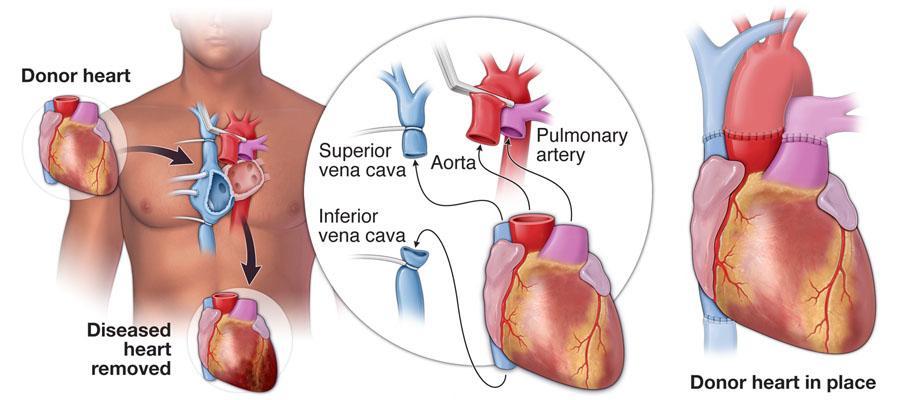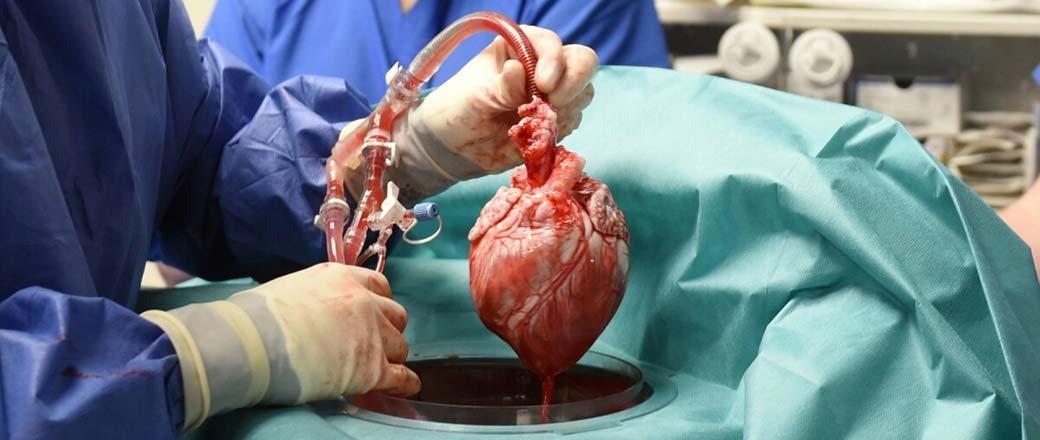Heart Transplant: Procedure, Indications, and Recovery
Understanding the Procedure, Indications, and Recovery
Introduction: A heart transplant is a complex surgical procedure performed to replace a damaged or failing heart with a healthy heart from a deceased donor. When we see the number of people underwent heart transplant, its about 5000 in 2023. You will be surprised to know that about 18 million peoples die due to heart failure in a year. If you are suffering from similar heart condition then heart transplant in India could be the best plan when it comes to the quality and affordability fron anywhere in the world. The cost of heart transplant in India may vary in defferent hospitals and different cities which is inbetween 40, 000 to 60, 000 USD.
This life-saving procedure is reserved for individuals with severe heart failure who have exhausted all other treatment options. In this article, we will delve into the procedure itself, the indications for a heart transplant, and the recovery process involved.
Procedure: A heart transplant typically involves several stages. First, a comprehensive evaluation is conducted to determine the patient's eligibility and suitability for the procedure. Factors such as the severity of heart failure, overall health, and the absence of other significant medical conditions are assessed.

Once a suitable donor heart becomes available, the recipient is prepared for surgery. The patient is administered general anesthesia, and the surgeon makes an incision in the chest to access the heart. The damaged heart is carefully removed, and the donor heart is connected to the major blood vessels, including the aorta and pulmonary artery. The heart is then restarted, and its function is carefully monitored. The entire procedure can take several hours.

Indications: Heart transplantation is considered when all other treatments for heart failure have been exhausted or are unlikely to be effective. The primary indications for a heart transplant include severe heart failure resulting from conditions such as:
Ischemic heart disease: A condition where the blood supply to the heart muscle is significantly reduced, often due to coronary artery disease.
Dilated cardiomyopathy: A condition where the heart muscle becomes weakened and enlarged, leading to reduced pumping ability.
Congenital heart defects: Some individuals born with complex heart defects may require a heart transplant if other interventions prove insufficient.
Valvular heart disease: Severe damage to heart valves, resulting in compromised heart function, may necessitate a heart transplant.
Recovery: After the surgery, the patient is closely monitored in the intensive care unit (ICU) to ensure the new heart functions properly and the body accepts it. Immunosuppressant medications are prescribed to prevent the body from rejecting the transplanted heart. The length of the ICU stay varies but is typically around one to two weeks.
Following discharge from the hospital, regular check-ups, medication adjustments, and cardiac rehabilitation become crucial for long-term recovery. Cardiac rehabilitation programs help patients regain strength, improve cardiovascular health, and adapt to lifestyle changes. In the entire procedure it is impotant to get the heart transplant with the best cardiac surgeons in india.
It is important to note that heart transplant recipients must adhere to a lifelong regimen of immunosuppressant medications to prevent organ rejection. These medications suppress the immune system, making patients more susceptible to infections and certain cancers. However, advancements in medical technology and improved immunosuppressant drugs have significantly improved the long-term survival rates and quality of life for heart transplant recipients.
Conclusion: A heart transplant is a remarkable medical procedure that offers hope and a new lease on life to individuals suffering from advanced heart failure. With ongoing research and technological advancements, the success rates and outcomes of heart transplants continue to improve. This life-saving intervention provides an opportunity for individuals to regain their health, vitality, and independence, ultimately offering a second chance at life. If you are looking for the top hospitals for heart transplant in India just contact with us, we will help you in each and every step of your health journey.
Before undergoing a heart transplant, a comprehensive evaluation is conducted to assess eligibility. Factors such as the severity of heart failure, overall health, and absence of significant medical conditions are crucial considerations. This evaluation helps determine if a patient is suitable for the procedure.
A heart transplant involves several stages. First, the patient undergoes a thorough evaluation to establish eligibility. Once a suitable donor heart is available, the recipient is prepared for surgery. The surgeon makes an incision, removes the damaged heart, and connects the donor heart. The entire procedure, performed under general anesthesia, can take several hours.
Heart transplantation is considered when other treatments for severe heart failure prove ineffective. The primary indications include ischemic heart disease, dilated cardiomyopathy, congenital heart defects, and valvular heart disease. These conditions may necessitate a heart transplant when all other treatment options have been exhausted.
After surgery, patients are closely monitored in the ICU to ensure the new heart functions properly and is accepted by the body. Immunosuppressant medications are prescribed to prevent rejection. The ICU stay is typically one to two weeks, followed by regular check-ups, medication adjustments, and cardiac rehabilitation for long-term recovery. Lifelong adherence to immunosuppressant medications is crucial.
Advancements in medical technology and improved immunosuppressant drugs have significantly enhanced the long-term survival rates and quality of life for heart transplant recipients. Ongoing research continues to improve success rates and outcomes, offering individuals suffering from advanced heart failure a second chance at life with increased health, vitality, and independence.
We are associated with experienced and highly skilled medical professionals. We use the latest medical technology available in the world and we provide medical services in collaboration with JCI & NABH Certified hospitals only. Our services include various types of treatment and organ restructuring and transplant.
